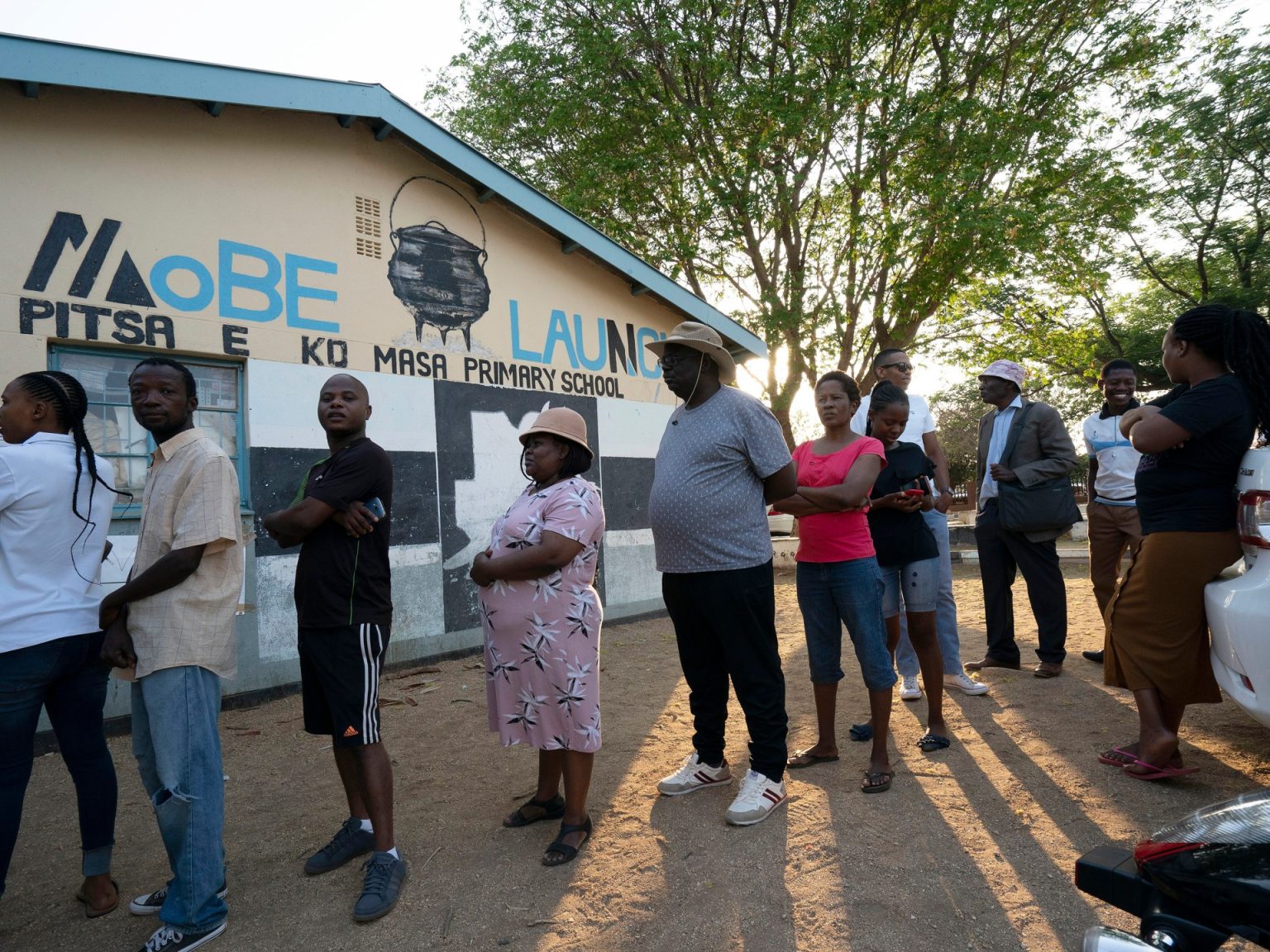Botswana, a country known for its stability and peaceful elections, is facing a tense general election amid a punishing drought and a drop in diamond revenue. With up to 1 million eligible voters heading to the polls, there are fears of post-election violence due to increased political competition and tensions in the country. The country, which boasts abundant natural resources and the world’s second-largest diamond reserves, is influential in the region and on the international stage.
The voting system in Botswana is indirect, with voters electing parliament members who then appoint the president from the governing party. The current president, Mokgweetsi Masisi, represents the Botswana Democratic Party (BDP) and is seeking another term in office. Masisi has faced criticism for his economic policies, including lifting a ban on trophy and elephant hunting and decriminalising homosexuality, as well as internal conflicts within the party.
Opposition parties, including the Umbrella for Democratic Change (UDC) led by Duma Boko and the Botswana Congress Party (BCP) led by Dumelang Saleshando, are challenging the dominance of the BDP. Another player in the election is Mephato Reatile, leader of the Botswana Patriotic Front formed by ex-President Ian Khama’s followers. Khama’s return to support the party has raised tensions, but analysts believe that fears of post-election violence are exaggerated.
Key issues in the election include the impact of diamond shocks on the economy, high unemployment rates, inequality, drought, and conservation. The economy, heavily reliant on diamond exports, has been hit hard by a global fall in prices and lack of diversification. Unemployment remains high, and the country struggles with inequality and the effects of climate change, including severe droughts affecting food production and water supply.
President Masisi’s government has faced criticism for undoing democratically passed laws, but has also been credited with upholding a stable democracy. The pending constitutional review process has stirred accusations of dictatorship, but analysts believe that Botswana’s democratic gains have been maintained under Masisi’s leadership. As voters head to the polls, the outcome of the election remains uncertain, with opposition parties offering promises of economic stability and job creation, while the ruling party seeks to maintain its dominance amid internal conflicts and economic challenges.













